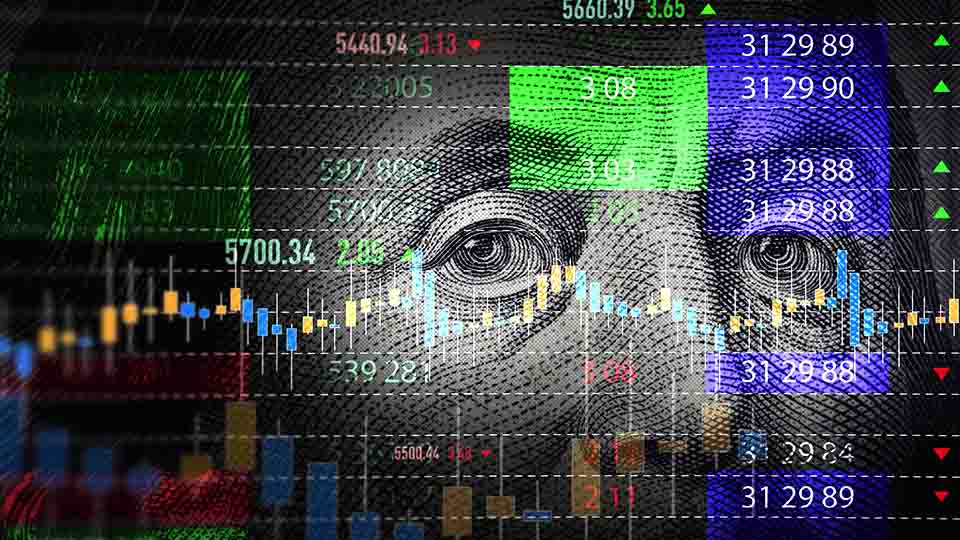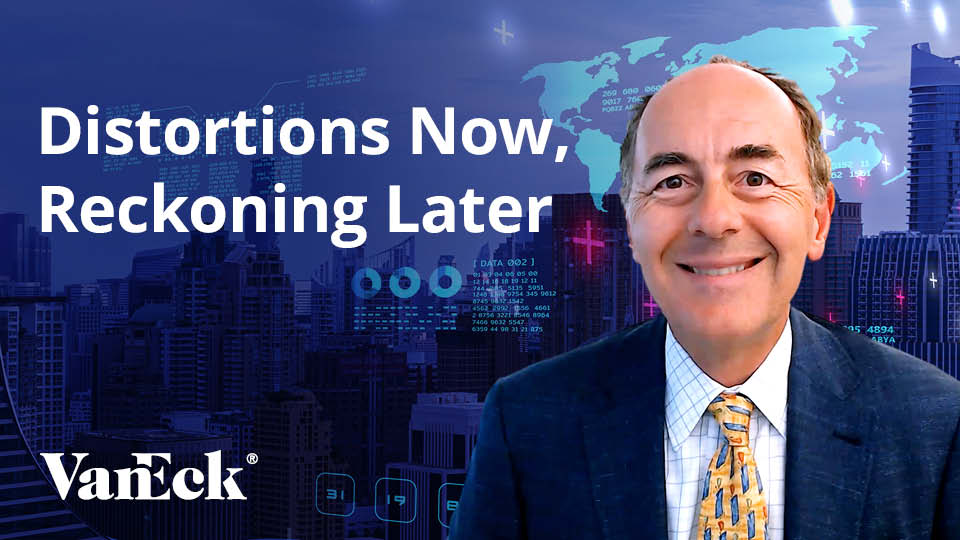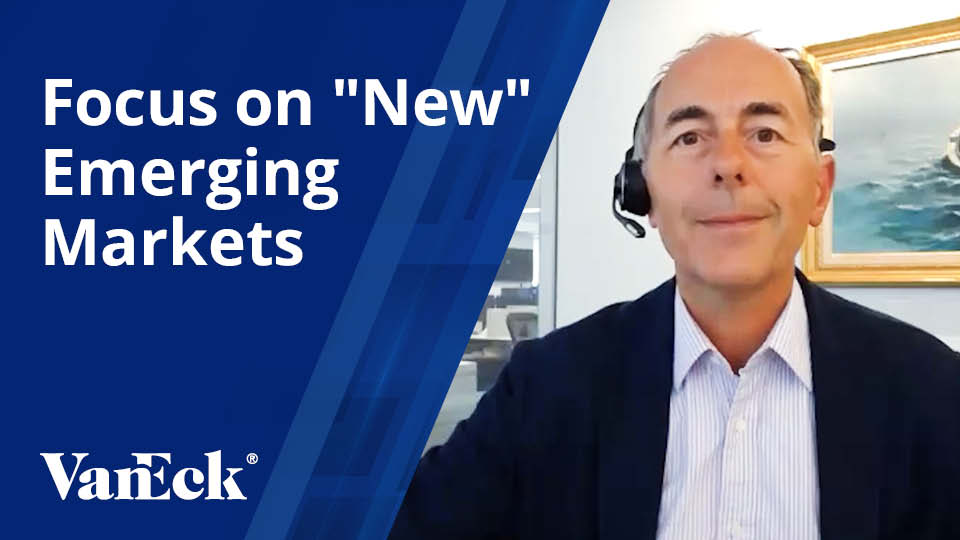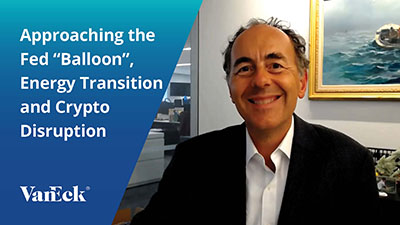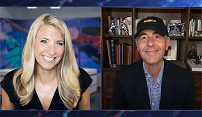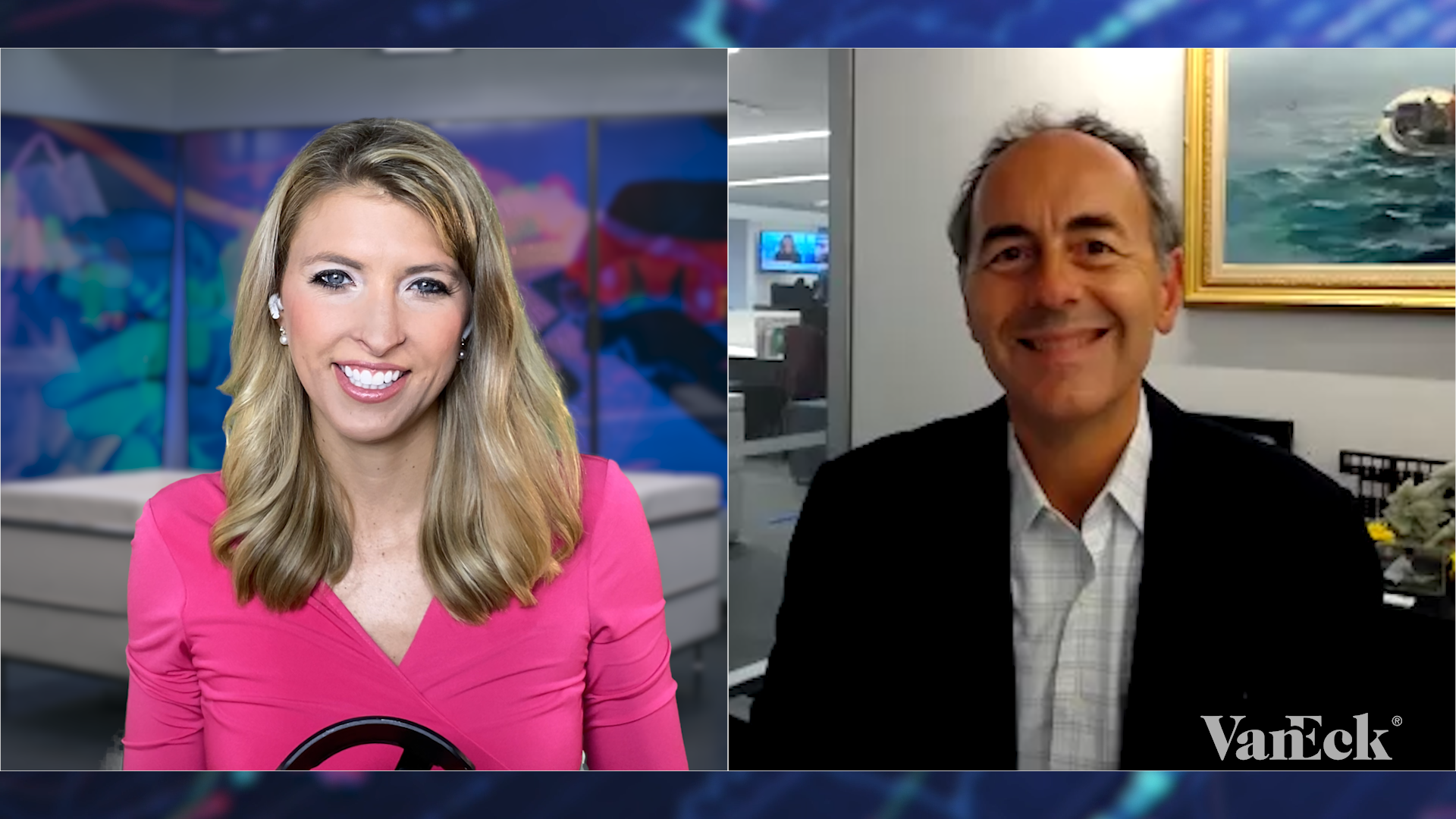Time to Hedge Against Central Bank Uncertainty?
18 October 2019
Watch Time 6:31
NATALIA GURUSHINA: Hello and welcome to VanEck’s quarterly outlook. My name is Natalia Gurushina. I'm the emerging markets economist and I'm joined today by the company's Chief Executive Officer Jan van Eck.
Jan, the first question: as usual, the shortest and the simplest. What happened in the summer? And what should investors make of it? Clearly there was a big spike in the issuance of bonds with negative yields, which coincided with high gold prices.
JAN VAN ECK: Right, right. Well, certainly the biggest, I think, event globally in the markets is the negative interest rates in Europe, which led to some excitement in the alternative assets area, with gold breaking through a very, very strong technical six-year mark. And Bitcoin also has had a good year. This is a time for investors to look at hedges to central bank uncertainty. Because that's really what people are worried about at two levels. Number one, gold competes against fixed income always. And high interest rates are tough for gold because gold doesn't pay any kind of yield. Gold looks great against negative interest rates. Investors are excited about that.
I think they're also, secondarily, a little concerned about the efficacy of central bank action. The European Central Bank has been stimulating, stimulating, stimulating, and, in fact, the European economy's slowing down. I think there's that concern. Now, on the counter side, obviously central banks do have an effect on economic growth and when combined with good fiscal actions like we saw in Japan, they can matter. But it just made investors nervous. And so that's the number one thing: invest. I think looking forward, which we also care about, look at your gold allocation, look at your hedge against central bank uncertainty. That's number one. And keep that, and I think that goes into 2020.
GURUSHINA: Yeah. One thing that is clear is that the so-called race to the bottom among key central banks created additional demand for fixed income. My question to you is, How should investors look at it? Is it kind of a fear trade? Is it the greed trade?
VAN ECK: There's so many things to be concerned about. But investors should not be excessively conservative in their fixed income portfolios. That is my biggest concern, because I think when you see, “Oh my gosh, interest rates are falling, that must be there's a global recession in 2020,” or, “China this …”, the tendency is to go very short term in your fixed income which gives you very low yields and I think that is absolutely the mistake. I'll give you two counters. Number one, on the credit side, why do you want corporate credit? High yield? Why? Because I don't think the world is falling apart. Commodity prices are a little weak, sure. And China is not bubbling. But it's not falling apart either. Europe aside (and the U.S. growing), I'm not sure (and full employment around the world), I'm really not sure what the concern would be about a normal credit allocation. That's number one.
The asset class, I think, that this summer got a little bit more sparkly, is emerging markets [EM] debt. A year ago, I liked it. Yield attractive, it had fallen a lot, so it was relatively cheap. As you may remember, had no correlation to U.S. stocks in the fourth quarter of last year. Kind of a nice balance to your portfolio. But now we actually have something positive to talk about. Brazil has been doing pro-growth reforms and just got its pension reform done. And that's a big leader obviously for South America. And India, surprisingly, just announced big corporate tax cuts, which is going to be very stimulative for their economy. I think EM debt now actually has something sort of positive and exciting going for it, as well as a kind of value story.
GURUSHINA: Yes. And from a kind of emerging markets economist side, I think probably some of the developed markets could learn something about how to do structural reforms because that's not enough we hear about when we talk about the developed world. Can you kind of segue back to China, because you said that China's not bubbling, but it's kind of, there is nothing critical there. But there's been a lot of noise surrounding trade tensions, trade war. How do you look at this?
VAN ECK: Well, the trade war was in the headlines this summer. It will probably continue to be in the headlines. And my strong feeling is: ignore politics in your portfolio. It's sort of a long-term truth that I learned when I came into the industry over two decades ago. You can't anticipate political events and we just learned that lesson over and over again this summer. You don't know what Trump is going to tweet around the trade war. You don't know how an election is going to turn out in Argentina. That poll is surprising everyone in the markets. And then of course you have like the military attack on the Saudi oil facility.
You can't build your portfolio around political risk. It's really too hard. Once we've read about it in the paper, it's in your portfolio, it's too late. I think the other political thing that's getting woven into a lot of portfolio conversations is ESG [environmental, social and governance] and I would caution, we're doing a lot of research in that area. It's very hard to do the tradeoffs between companies and to do full research given data. I would just caution the over-politicization of portfolios kind of on both those scores: trade war and ESG.
GURUSHINA: Yes. And for China, it is probably worth mentioning as well, is that the, especially on the monetary policy side, the policy was relatively constrained, I would say. There is no kind of strong intention on the part of the central bank to flood the system with cheap credit, which I think is also quite commendable.
VAN ECK: Right, right. Which should be, maybe, lower growth, but more stable growth.
GURUSHINA: And higher quality growth.
VAN ECK: And that's good. That's good for fixed income investors.
GURUSHINA: Fantastic. Jan, thank you very much. And thank you very much for tuning in. For further insights from VanEck experts, you can visit us at
